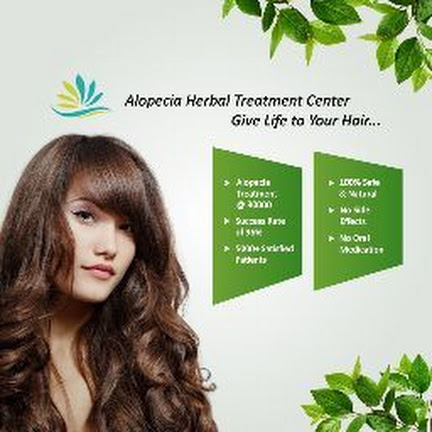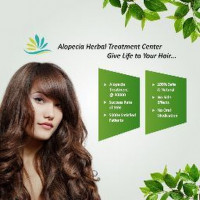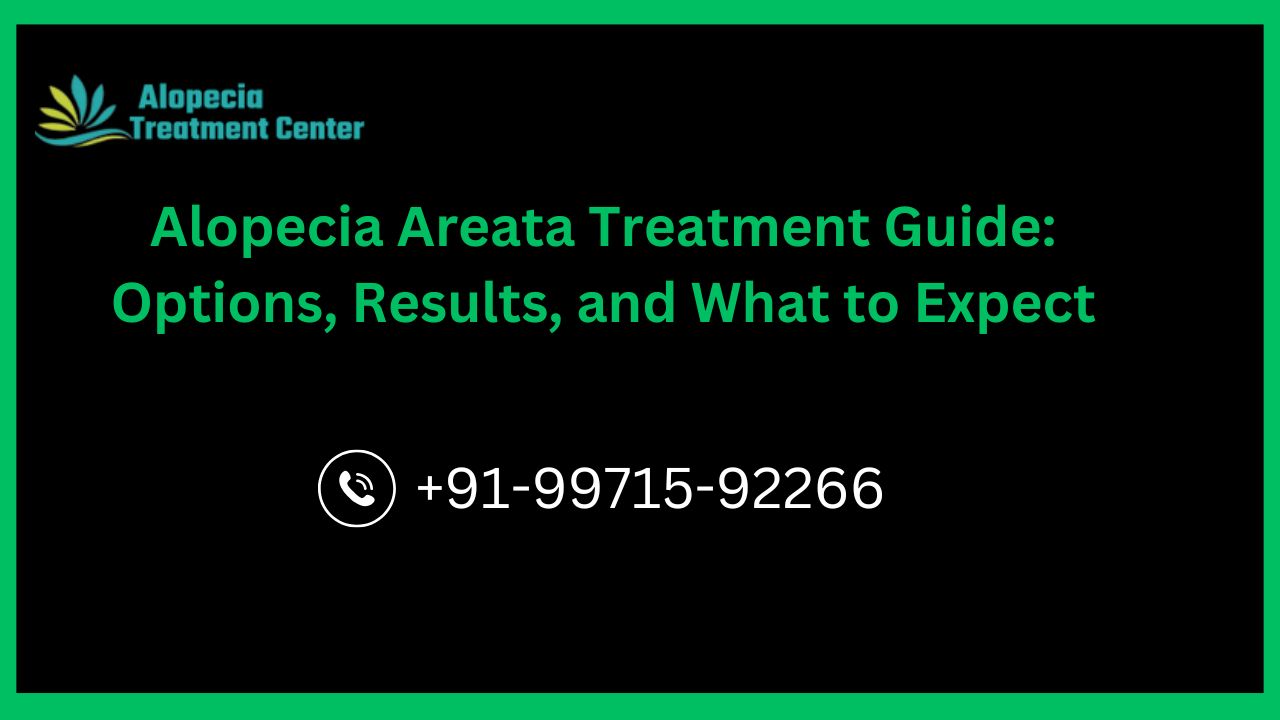Effective Treatments for Alopecia Areata: Restoring Hair and Confidence

Alopecia Areata is an autoimmune disorder where the immune system mistakenly attacks healthy hair follicles, leading to hair loss. It can cause patchy bald spots on the scalp, beard, eyebrows, or other parts of the body. While it isn’t life-threatening, it can have a significant psychological impact on those affected. The good news is that there are several effective treatments to help manage this condition.
Types of Treatments for Alopecia Areata
1. Topical Treatments
Minoxidil (Rogaine):
A popular over-the-counter medication, Minoxidil stimulates hair regrowth. It is applied directly to the affected area and can show results within 3–6 months.
Corticosteroids:
Topical corticosteroid creams and lotions help reduce inflammation and suppress the immune response that targets hair follicles.
Note: Topical treatments are often recommended for mild cases of alopecia areata.
2. Intralesional Steroid Injections
For more localized hair loss, dermatologists may inject corticosteroids directly into bald patches. This method often yields quicker results than topical creams, and regrowth can appear within a few weeks.
3. Oral Medications
Corticosteroids:
Systemic corticosteroids may be prescribed for severe cases to reduce inflammation throughout the body.
JAK Inhibitors (e.g., Tofacitinib, Ruxolitinib):
These drugs target specific immune pathways to stop the immune system from attacking hair follicles. Some patients have reported significant regrowth with these medications.
Caution: Oral medications can have side effects, so they must be taken under a doctor’s supervision.
4. Light Therapy (PUVA Treatment)
PUVA therapy involves exposing the scalp to ultraviolet light after applying a photosensitizing medication. This therapy aims to suppress the immune response and stimulate hair growth.
5. Immunotherapy
In cases where other treatments fail, topical immunotherapy with chemicals like diphenylcyclopropenone (DPCP) may be used. These chemicals cause a mild allergic reaction on the skin, which can redirect the immune system's focus and promote hair regrowth.
6. Alternative and Natural Treatments
Essential Oils:
Oils like peppermint, rosemary, and lavender are believed to stimulate hair follicles and improve scalp health.
Diet and Supplements:
A diet rich in vitamins (like Vitamin D and Biotin) and minerals (like zinc and iron) can help optimize hair regrowth. Supplements such as Omega-3 fatty acids may also reduce inflammation.
Managing the Emotional Impact
Hair loss can affect self-esteem and mental health. It's essential to seek emotional support through therapy, counseling, or support groups. Social connections can provide comfort during challenging times.
Conclusion
While alopecia areata may not have a definitive cure, many treatments can manage symptoms and encourage hair regrowth. From topical solutions and steroid injections to advanced medications and natural remedies, there are options for everyone. Early diagnosis and a personalized treatment plan can help restore not only hair but also confidence and emotional well-being. Consult with a dermatologist to find the treatment that works best for your condition.
Learn More:- alopecia herbal treatment center
1. What is the most effective treatment for alopecia areata?
There is no one-size-fits-all solution, but effective treatments include topical corticosteroids, Minoxidil, and JAK inhibitors. Steroid injections and light therapy are also commonly used for localized or severe cases. The best treatment depends on the extent of hair loss and individual response to therapies.
2. Can alopecia areata be cured permanently?
Currently, there is no permanent cure for alopecia areata. However, many treatments can manage the condition and promote hair regrowth. Some individuals experience spontaneous hair regrowth without treatment, but recurrences are possible.
3. Are there any natural remedies for treating alopecia areata?
Yes, natural remedies like essential oils (e.g., rosemary, lavender) and dietary supplements (e.g., biotin, zinc) may support hair regrowth and improve scalp health. Stress management, along with a healthy diet rich in vitamins and minerals, can also help manage the condition. However, these remedies may complement medical treatments rather than replace them.
Note: IndiBlogHub features both user-submitted and editorial content. We do not verify third-party contributions. Read our Disclaimer and Privacy Policyfor details.



